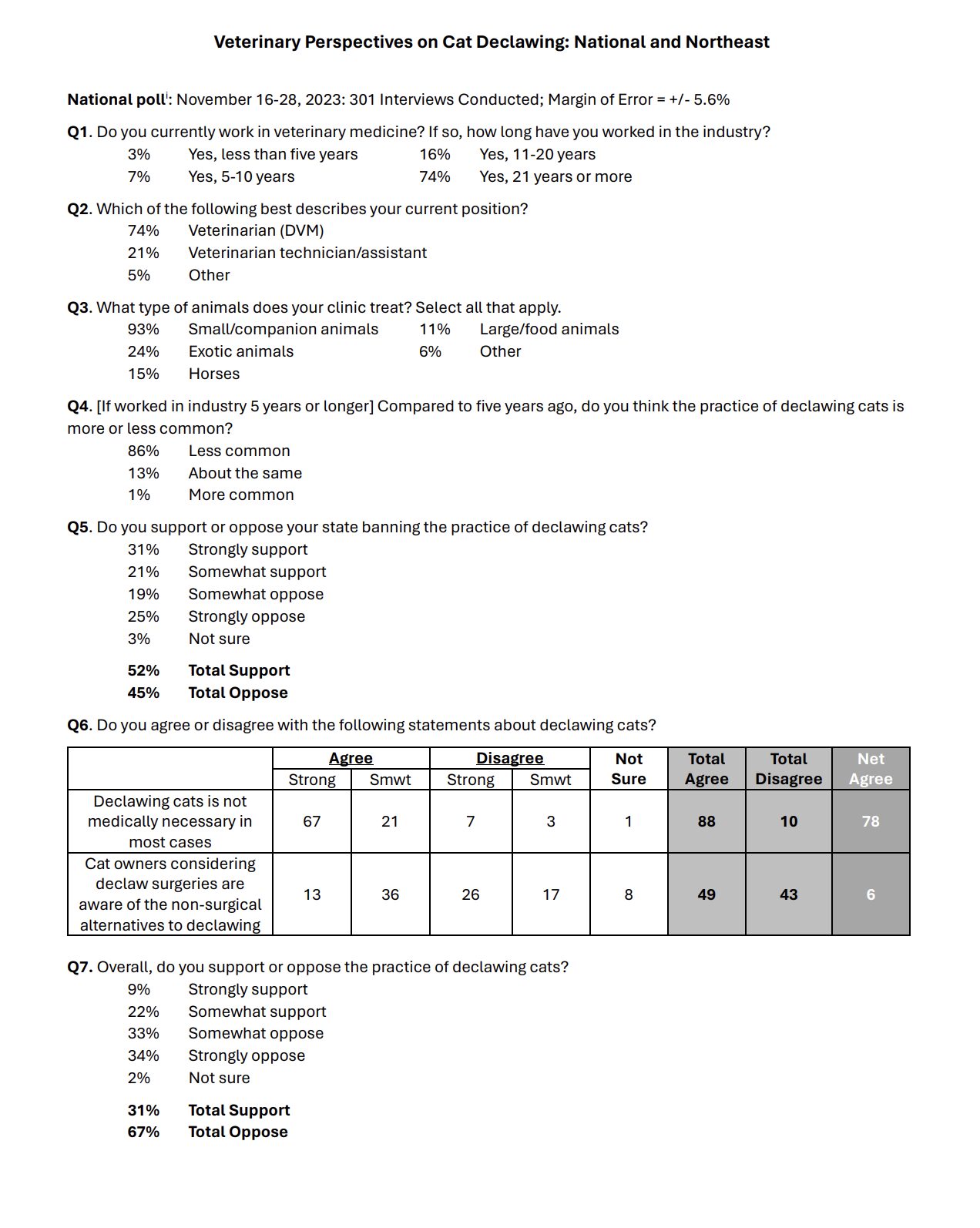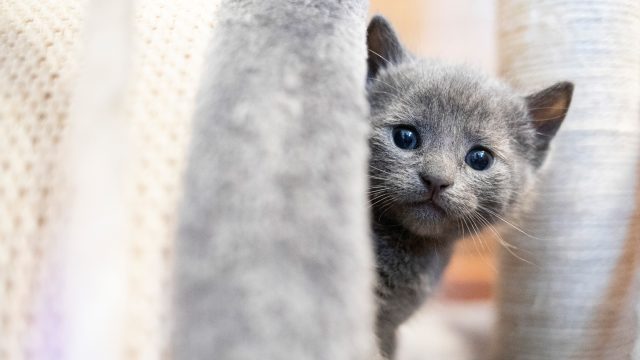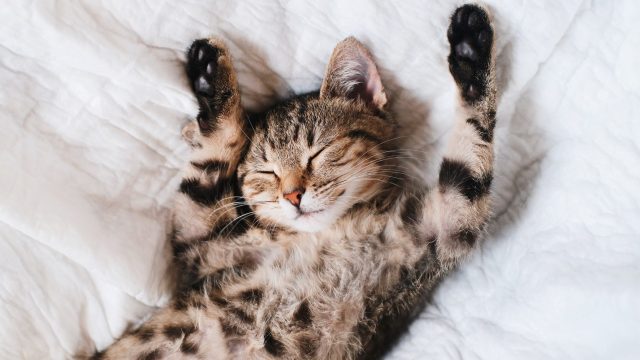
Nearly 70 Percent of Veterinary Professionals Oppose Cat Declawing as Rhode Island Seeks to Ban the Procedure
New poll underscores the surge of support from the veterinary community to ban the cruel practice.
Contact: media@aldf.org
PROVIDENCE, R.I. — An invasive surgical procedure, which could have been misconstrued as a ‘quick fix’ to stop cats from scratching furniture in the past, has become a prominent topic in legislatures across the country. New York, Maryland, Virginia, and Washington D.C. have already banned declawing cats with narrow exceptions for a cat’s health and in Virginia a concerning loophole. More states are considering a prohibition on unnecessary cat declawing — with significant support from the veterinary community.The Rhode Island banning declaw (SB 2007/HB 7052) passed the state Senate in April and has not been taken up in the House of Representatives; the Rhode Island legislative session ends this week.
The Animal Legal Defense Legislative Fund announced new poll results showing veterinary professionals, including veterinarians as well as vet techs and assistants, overwhelmingly oppose cat declawing oppose cat declawing — a surgical procedure consisting of a series of amputations involving the last bones of a cat’s toes. Not only is the procedure painful, but it can also cause life-long pain in the paws, bleeding, infection, tissue death, nerve damage, arthritis, loss of balance, back pain, and even lameness. Chronic pain from the procedure can lead to unwanted behavioral responses such as increased tendency to bite due to the removal of their first natural defense mechanism and litter box avoidance due to pain stepping in litter.

Animal Legal Defense Legislative Fund National Poll Results
Veterinary Perspectives on Cat Declawing: National and Northeast
Results from the northeast states poll include:
- 73 percent of veterinary professionals personally oppose the practice of declawing cats.
- 60 percent support their state banning the practice of declawing cats, except in cases where it is medically necessary for the cat’s health.
Results from the national poll include:
- 70 percent of veterinary professionals oppose cat declawing.
- 85 percent of veterinary professionals under age 50 oppose cat declawing.
- 90 percent of veterinary professionals with less than 10 years of experience would support a statewide ban.
“If the severity and impact of declawing procedures were better understood by the public, this practice would have been banned long ago,” says Animal Legal Defense Legislative Fund Executive Director Kim Kelly. “The data show a shift in priorities for veterinary professionals — with younger generations putting cats’ health and wellbeing before upholstered furniture. The Animal Legal Defense Fund thanks bill sponsors Senator Melissa Murray and Representative William O’Brien for their steadfast leadership and thanks Senate President Dominick Ruggerio and the full Senate for passing the declaw ban for a second time this session. We are deeply disappointed that the bill has not advanced in the House but remain determined to protect cats from cruel and unnecessary declaw procedures.”
Declawing, or onychectomy, is a serious medical procedure where a cat’s third phalanges (toe bones) and claws are surgically removed. The American Veterinary Medical Association states it “should be regarded as major surgery.” The procedure is commonly performed for convenience such as preventing the animals from scratching furniture rather than for the cat’s well-being.
Some of the rationale provided by the participants of the poll for opposing declawing cats included shifting public sentiment about declawing as unacceptable, changing perceptions about cats as family members, the availability of non-invasive alternatives, increased education of clients on the surgery, and opposition to the procedure among newer veterinary professionals challenging outdated perceptions.
In addition to Rhode Island, legislation has been filed in Arizona, California, Illinois, Massachusetts, Michigan, Minnesota, New Hampshire, New Jersey, and Pennsylvania in 2024. Many large cities have jurisdictional bans, including Los Angeles, San Francisco, Pittsburgh, Madison, West Hollywood, Austin, Denver, Beverly Hills, and Berkeley.
Focus Area
Related
-
Resolution Opposing Elective Cat Declaw Surgeries Introduced in the U.S. House of Representatives
Declawing is a cruel surgical procedure to remove the last bone in a cat's toesDecember 16, 2025 Press Release -
California Governor Signs Animal Protection Bills into Law
The Animal Legal Defense Fund sponsored two bills protecting cats and wild animalsOctober 21, 2025 News -
ALDF Urges Justice for Cat Victims in Elkhart County
The county’s prosecutor dismissed criminal charges against the manufacturing plant employees who killed two feral cats in a trash compactorAugust 11, 2025 News
Sign Up!
Join the Animal Legal Defense Fund's email list to stay up to date on lawsuits, legislation, and regulations affecting animals.




